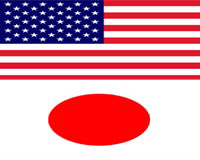| . |  |
. |
Berlin (UPI) Nov 3, 2009 German Chancellor Angela Merkel Tuesday told the U.S. Congress that Europe and the United States should move closer together to better tackle global threats including climate change, Iran and the war in Afghanistan. In the first speech of a German chancellor to Congress in more than five decades, Merkel said the NATO-led campaign in Afghanistan "must be taken to the next level" as soon as a new Afghan government enters office. "The goal must be to develop a handover strategy for responsibilities, which we want to develop at a U.N. conference early next year," Merkel said. "We will be successful if we continue to take every step in the alliance together." Germany has 4,000 troops in Afghanistan, the third-largest force behind Britain and the United States. Washington wants to boost NATO's efforts in Afghanistan and is expected to ask Merkel to send more troops to the war-torn country, a demand that won't go down well in Berlin, observers say. The campaign is increasingly unpopular in Europe. Merkel said Iran must be stopped from acquiring a nuclear bomb, called climate change a great threat that needed swift action, and added that globalization -- if handled correctly -- "is a great global opportunity for each and every continent" because it forces nations to work together. Merkel, who grew up in Communist East Germany, in an emotional entree to her speech told the joint session of Congress about her teenage days behind the Iron Curtain. She said she was a fan of American-made jeans that her aunt from the West smuggled into the country. Merkel said it was "beyond my imagination even to travel to the United States, much less stand before you one day." "In my wildest dreams, I would not have thought this possible." But on Nov. 9, 1989, when Merkel was 35, the Berlin Wall fell. Merkel moved westward and began a career in politics. She just began her second four-year term as chancellor. Less than a week before Germany celebrates the 20th anniversary of the fall of the Berlin Wall, Merkel thanked the United States for its role in helping to bring about that historic event. She mentioned John F. Kennedy, who in solidarity with Berlin's walled-in population spoke the famous words "Ich bin ein Berliner"; Ronald Reagan, who in 1987 in Berlin called on Soviet leader Mikhail Gorbachev to "tear down this wall"; and finally George H.W. Bush, who pushed for a unified Germany and offered it a leading role in global politics. The chancellor spoke of a much different Nov. 9: that of 1938, when Nazis attacked Jewish businesses and burned down synagogues in what has become known as Kristallnacht. "I cannot stand before you here today without commemorating the victims of this day and the Shoa," Merkel said. Winning thundering applause from the crowd, Merkel vowed that Israel's security was not negotiable, adding that Iran must be prevented from obtaining a nuclear weapon. "A nuclear bomb in the hands of an Iranian president who denies the Holocaust, threatens Israel and denies Israel the right to exist is not acceptable," Merkel said. Mentioning melting arctic ice caps and rising sea levels, the chancellor urged the United States to join forces with Europe to battle climate change. "We have no time to lose," Merkel said. She warned that "the world will be looking at us, at Europe and America" during a U.N.-mandated climate protection conference this December in Copenhagen, Denmark. The accord to be born at Copenhagen -- to feature binding emissions-reductions targets, adaptation measures and their funding -- is due to replace the Kyoto Protocol, which runs out in 2012. Key to the future accord are ambitious commitments from the United States and leading developing economies such as India and China. Merkel said Copenhagen would not produce an agreement without commitments from developing nations such as India and China. "But I am sure that if we in Europe and the U.S. are willing to commit to binding goals, then we can convince India and China as well." Merkel is the second German leader to address the U.S. Congress after Konrad Adenauer did so in 1957. Share This Article With Planet Earth
Related Links Learn about the Superpowers of the 21st Century at SpaceWar.com Learn about nuclear weapons doctrine and defense at SpaceWar.com
 Japan denies friction with US
Japan denies friction with USTokyo (AFP) Nov 2, 2009 Japan's centre-left government on Monday denied US ties were being strained by a row over an American airbase, amid confusion over whether its foreign minister will travel to Washington this week. The US State Department on Saturday said Japanese Foreign Minister Katsuya Okada would meet US Secretary of State Hillary Clinton on Friday, but within hours dropped mention of the meeting from Cli ... read more |
|
| The content herein, unless otherwise known to be public domain, are Copyright 1995-2009 - SpaceDaily. AFP and UPI Wire Stories are copyright Agence France-Presse and United Press International. ESA Portal Reports are copyright European Space Agency. All NASA sourced material is public domain. Additional copyrights may apply in whole or part to other bona fide parties. Advertising does not imply endorsement,agreement or approval of any opinions, statements or information provided by SpaceDaily on any Web page published or hosted by SpaceDaily. Privacy Statement |